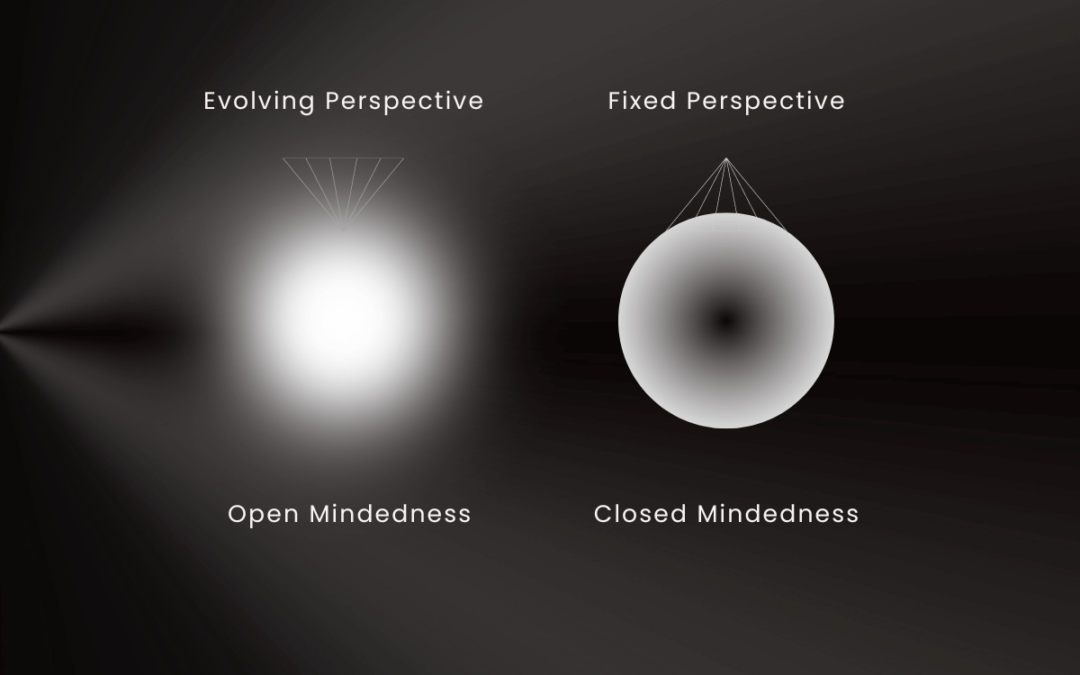Have you ever wondered why some people consistently make progress in their personal and professional lives, while others seem to repeat the same mistakes? It all comes down to mindset. In this article, we will delve into the fascinating distinction between open-minded and closed-minded individuals, drawing insights from the renowned Ray Dalio. Prepare to gain a deeper understanding of how your mindset can shape your journey to success.
The Significance of Anomalies:
Imagine anomalies as glitches in the matrix—those surprising, missing, or strange moments that challenge our established beliefs. How we respond to anomalies provides a window into our level of open-mindedness. Closed-minded individuals often dismiss or ignore these anomalies, whereas open-minded individuals embrace them, driven by a genuine desire to understand. However, exploring anomalies can be daunting as it requires questioning and potentially discarding our deeply ingrained ideas and beliefs.
The Mindset Divide:
In his enlightening book “Principles,” the accomplished Ray Dalio outlines seven additional ways to discern the mindset divide between open-minded and closed-minded individuals. Let’s explore some of these differentiators:
1. Challenging Ideas:
Closed-minded individuals are reluctant to have their ideas challenged. They focus on persuading others to agree with them rather than seeking to understand differing perspectives. Disagreement frustrates them, and they may become defensive when faced with alternative viewpoints. Conversely, open-minded people approach disagreement as an opportunity for growth. They welcome diverse perspectives and are willing to change their minds based on new information.
2. Statements vs. Questions:
Closed-minded individuals tend to make statements rather than asking questions. They prioritize asserting their opinions instead of seeking to understand others’ ideas. Open-minded individuals genuinely believe they could be wrong and express their curiosity through thoughtful questioning. They value diverse perspectives and recognize that their own opinions may be limited.
3. Understanding:
Closed-minded individuals focus more on being understood rather than understanding others. When faced with disagreement, they often rephrase their statements without seeking clarification. In contrast, open-minded individuals empathetically strive to see things through others’ eyes. They quickly acknowledge gaps in their understanding and seek to bridge them.
4. “I Might Be Wrong, But…”:
Closed-minded individuals often use the phrase “I could be wrong” as a perfunctory gesture while still holding firmly to their opinions. Open-minded individuals genuinely embrace the possibility of being wrong and are open to questioning their own beliefs.
5. Just Shut Up:
Closed-minded individuals tend to block others from speaking, showing little interest in hearing alternative viewpoints. Open-minded individuals value active listening and encourage diverse perspectives within a group discussion.
6. Holding Two Thoughts:
Closed-minded individuals struggle to hold two conflicting thoughts simultaneously, often closing their minds around their preferred ideas. In contrast, open-minded individuals can entertain and assess conflicting concepts without losing their ability to think critically.
7. Humility:
Closed-minded individuals often lack a deep sense of humility, which is often gained through learning from failure. Open-minded individuals approach everything with a humble attitude, acknowledging their own fallibility and the potential for growth and learning.
The Journey towards Open-Mindedness:
Recognizing that we all possess varying degrees of closed-minded behavior is the first step. Open-mindedness requires conscious effort and self-reflection. Instead of blaming ourselves when closed-minded tendencies arise, we should use them as opportunities to gain deeper insights into our own thoughts and the world around us.
Becoming more open-minded is a transformative journey that empowers us to embrace diverse perspectives, challenge our beliefs, and continue learning and growing. While closed-mindedness can serve a purpose in certain situations, cultivating open-mindedness opens doors to new possibilities and enables us to navigate the complexities of life with greater wisdom. As F. Scott Fitzgerald wisely said, “The test of a first-rate intelligence is the ability to hold two opposed ideas in mind at the same time and still retain the ability to function.” So let’s strive to embrace open-mindedness and unlock the boundless potential it holds.

